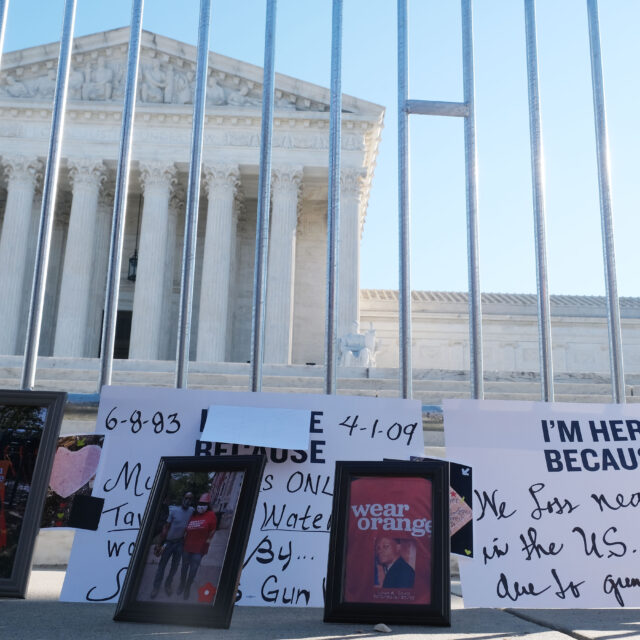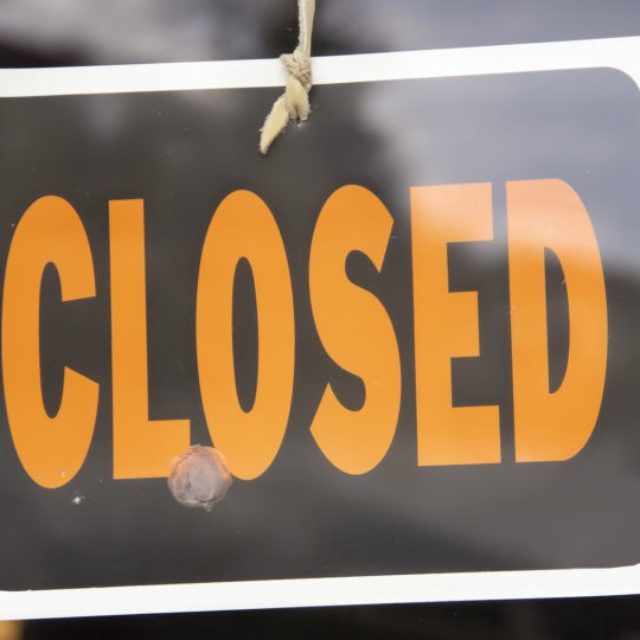Rethinking Legal Responsibility For Stolen Guns
4.1.2019
As the gun lobby continues its efforts to dismantle public safety protections around carrying guns in public, communities are left grappling with a range of consequences. Among the most concerning is the problem of gun theft: more guns in public means more opportunities for these guns to be stolen, and indeed, reporting shows that gun thefts have been on the rise in recent years. One study estimates that as many as 380,000 guns are now stolen every year.
Police records suggest that nearly one quarter of all stolen guns were stolen from cars. Cars are particularly vulnerable: an owner who leaves a gun under a seat, in a locked glove compartment, or who fails to lock the car doors exposes the gun to thieves. Recent reporting indicates that law enforcement too has a “stolen gun problem.”
Stolen guns pose a significant risk to public safety. Once a gun is stolen, it is often sold into the underground market, an arena where people with dangerous histories may look to obtain firearms. It is no surprise then that stolen guns are often recovered in connection with crimes. In fact, investigative reporters have linked thousands of stolen guns to crime scenes, including more than 1,500 violent crimes, and no doubt there are countless more, from carjackings and kidnappings to armed robberies at stores and banks. According to one ATF official, “The impact of gun theft is quite clear. It is devastating our communities.”
As a nation we have a number of tools to try to cut down on this growing threat to public safety. The strongest response is to pass and enforce laws and policies, including those that mandate responsible firearm storage, require gun owners to report lost and stolen firearms, and impose tough penalties for failing to do so. A number of states and cities have done just that.
Another way we change dangerous and injury-causing behavior is through our civil justice system. Of course, the criminal who steals a gun and uses it to commit a subsequent crime should be prosecuted and held fully accountable. But our civil justice system wisely recognizes that more than one person can contribute to — and be held legally responsible for — harm caused to an innocent third party. Imposing liability and awarding money damages for negligent conduct is one of the foundations of modern American law.
Two recent decisions from California suggest that courts are moving toward recognizing owner responsibility for negligent gun storage in cars. In each case, a federal agent left a service pistol in an unattended car in downtown San Francisco, and in each case, the gun was stolen and used in a homicide within a month.
Both decisions have significant implications for the role of the civil justice system in recognizing a basic duty on the part of gun owners towards the public. Unlike prior decisions, where courts have tended to throw out similar lawsuits (often on the premise that a third party’s criminal act is not foreseeable and/or breaks the chain of legal causation), in these two cases the courts rejected motions to dismiss and instead let the cases continue.
Ultimately, the question in these lawsuits will be this: is it fair to ask a gun owner to bear some portion of responsibility to compensate a victim of a crime committed with a gun that the owner carelessly exposed to theft by leaving it unsecured in a parked car?
A number of factors strongly suggest courts and juries are increasingly likely to answer yes. The question of legal duty turns in large part on foreseeability. Given all that is now known and reported about the connection between gun theft and crime, it is readily foreseeable that unsafe gun storage in a car could result in theft by a criminal followed by injury or death to others. Whether there is a legal duty also turns on the ease with which precautions could have been taken to avoid the harm, and gun theft from cars is easily preventable with minimal effort and cost. In addition, a growing number of state and local laws demonstrate an emerging policy consensus that gun owners have a responsibility to take reasonable precautions to prevent avoidable firearm misuse by unauthorized users and that irresponsibly stored guns are a danger to public safety.
Even the gun industry’s own trade association, the National Shooting Sports Foundation, acknowledges that “thefts of firearms from vehicles are on the rise” and that to be a “responsible gun owner” means “[y]our firearm must be under your control at all times; when it’s not, it should be placed in locked storage and out of sight.”
The civil justice system has an important role to play in deterring careless gun storage and compensating those who are harmed as a result. In suits brought by survivors and victims of crimes committed with guns stolen from cars, courts should allow juries to decide whether a negligent gun owner should bear some legal responsibility for a harm they easily could have prevented.





